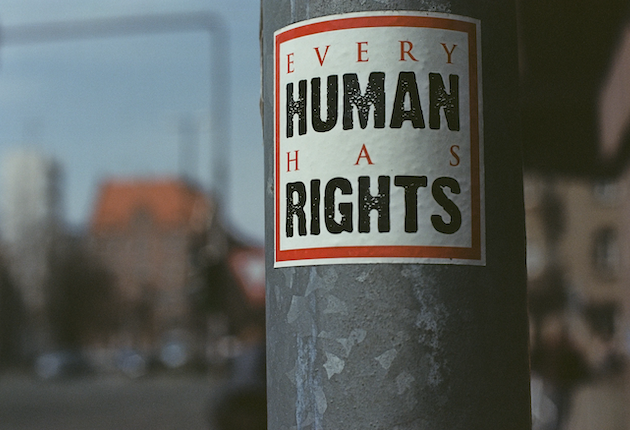Human rights advocates could be more active in using human rights tools to transform economic thought and practice, particularly in holding private and public economic actors accountable for their actions.
From a human rights perspective, economics is failing us. Inequalities are growing; we are consuming more than the Earth’s natural systems can provide; economic calculations neglect much of what many of us hold dear, such as community, traditions, or caring for life; and economic decisions are often made without adequate democratic scrutiny.
Human rights has responses to these failures.
The concrete potential of human rights to transform economics
Long-standing human rights principles such as non-discrimination, participation, and accountability would have transformative potential, if embedded into economics.
These principles are not abstract: human rights bodies have fleshed out how they are to be applied. They set out the guidance needed to reorient economic policy so as to make economic processes and outcomes fairer for people and the planet. All States in the world have recognized the legal weight of these principles. Their application has enabled historically discriminated groups to stake claims and achieve changes towards a more just society.
In economic policy-making, the principles of equality and non-discrimination, for instance, direct us to carry out our enquiries from the standpoint of the most vulnerable segments of society and to consider how different groups, especially those living in poverty, may be affected differently by economic policies. This differs from much of economic thinking, which generally starts from the perspective of the largest, most influential actors and usually measures results in aggregate terms.
Human rights recognize and uphold people’s differences of beliefs, culture, and convictions. Moreover, principles underlying—and applications of—the rights of Indigenous peoples, as well as the rights to health, to life, and the newly-recognized human right to live in a clean, healthy and sustainable environment help set economic policies that respect the natural carrying capacity of the Earth.
Economics ignores this diversity, tending to operate within a narrow worldview of essentially market-mediated relations and ignoring different approaches to valuing and managing the living world. Human rights can call attention to this and to other flaws of the foundational principles of economics by asserting the right to different cultures and worldviews, by focusing on the most vulnerable groups, and by recalling that due process is as important as economic efficiency – or more so.
To paraphrase the UN Committee on Economic, Social and Cultural Rights, an essential step towards ensuring positive societal outcomes of a particular economic policy is to take stock of the existing situation. Inadequate assessment of the full range of impacts of a proposed economic policy is inconsistent with the human rights obligation to take deliberate, concrete, and targeted steps towards the realization of human rights. It also defies common sense.
Human rights’ unique accountability and redress mechanisms
Most importantly, human rights mechanisms grant redress to individuals or groups who face discrimination or other forms of denial of their rights. These redress and accountability mechanisms are what set Human Rights Economics apart from other strands of economics that also seek a more just, more sustainable world.
There are other approaches to making economics more just. Doughnut economics, feminist economics, stratification economics, and ecological economics all share human rights values, principles, and objectives, as do alternative economic discourses such as post-colonial economics, ReThinking Economics, or the wellbeing economy.
What these lack, though, are the global mechanisms for holding economic actors accountable that exist in the human rights field. Bringing these to bear can significantly bolster efforts in favor of a fairer economy. In addition, the social mobilization power of human rights can lend formidable weight to these efforts.
“The social mobilization power of human rights can lend formidable weight to efforts in favor of a fairer economy.”
A challenge to the human rights community
Human rights advocates have successfully brought cases against private economic corporations and have held governments accountable to their human rights obligations.
Yet they could do so much more.
The human rights community has not been systematically proactive in working to ensure that human rights principles and values are reflected in economic policy, despite having increased its attention to the human rights dimensions of economic policies in recent years.
To have more of an impact on economic thinking and practice, human rights advocates must move beyond descriptions of problems and solutions. They should challenge systems, not symptoms, and implement activities to ensure that economic outcomes as well as the process of formulating and applying economic policy are consistent with human rights.
This could involve dispelling common misunderstandings about human rights—such that they are not suited to policy choices. It would also include flagging the conceptual, legal, and social flaws of mainstream economic principles and challenging mainstream economics’ too-narrow focus on efficiency and growth. Human rights advocates should be more deliberate in working with progressive economists on human rights’ widely accepted ethical and accountability framework.
The human rights community could perhaps most usefully undertake concerted work to demonstrate the practical applicability of human rights principles in economics. Examples of how human rights can inform and influence economic policy include initiatives such as studies on the distributional impacts of tax and welfare reforms on people who are vulnerable to discrimination, human rights-based economic justice advocacy in South Africa, and human rights impact assessments of planned trade agreements.
Human rights has the potential to transform economic thinking and practice and bring about an economic system that is fairer for people and the planet, promotes social and economic justice, integrates a plurality of views and traditions, and is consistent with human rights in both its processes and outcomes.
That potential can and should be put into practice.
Original source: Open Global Rights
Image credit: Markus Spiske, Unslplash.com

